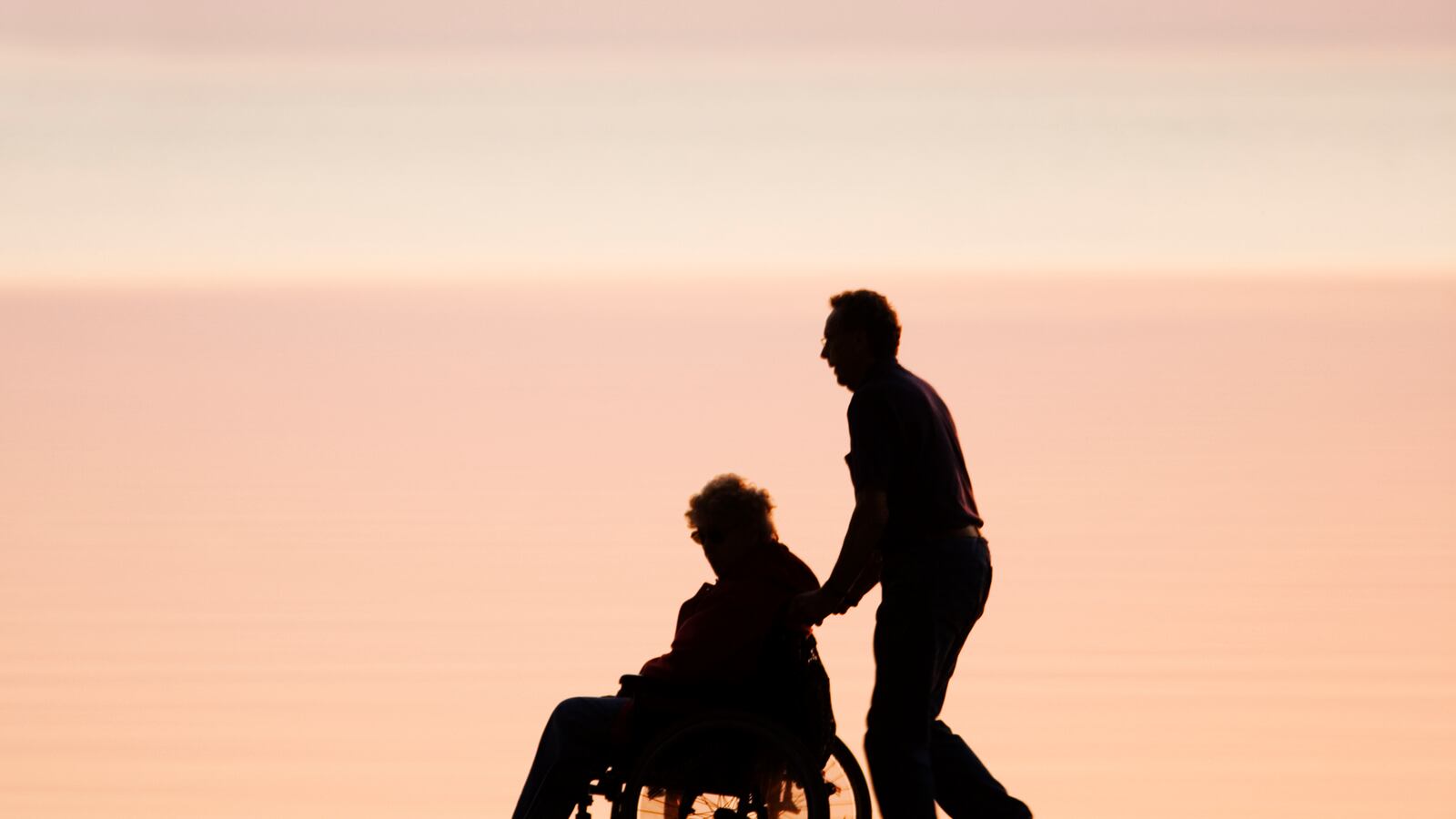It’s not hard to find a critic of the Kardashian family. Ridiculing the reality-TV crew is so common that perhaps proclaiming to be a fan might soon become some hipster form of cool cultural irony.

What is rare is for a member of the clan to speak out against the family. Kris Jenner, the family matriarch, is facing mounting public criticism from a sibling that she is not doing enough to aid their elderly mother. Though the TV star is not accused of any particularly egregious behavior, her sister has argued that with Jenner’s multimillions she should be spending more on the care of their mother. The claims have led one tabloid to brand Jenner a “deadbeat daughter.”
The family feud raises an interesting question: What responsibility do adults have for their aging parents? Many say the answer’s easy: that adult children owe the same commitment to their elders as their parents demonstrated to them when they were children. But for those with complicated financial situations, or even complicated family dynamics, things are not so clear-cut. For instance, if an adult child was abused by a now-elderly parent, should he be required or simply guilted into caring for that person in his or her twilight years?
Last year, China implemented a law requiring adult children to be emotionally supportive of their parents, including in the form of visits. In America, care for elder parents is a state issue, and not regulated by federal measures. “Here in New York, children have no legal obligation at all with respect to the care of their parents, or any obligation with respect to their expenses,” said James A. Robbins, a specialist in elder law at Manhattan-based Robbins & Associates. Asked if he believes there should be some sort of law enforcing such care, he said, “My own opinion is no. Adult children have obligations to their own children. As a lawyer, I believe it’s not something that should be legislated.” But, he added, “Morally speaking and from my experience as an elder law attorney who deals with children of elderly parents all the time, I do believe that children have a moral obligation to do what they can to make sure their parents are as well cared for as they possibly can.”
Though more than a dozen states have so-called filial laws on the books requiring adult children to care for indigent parents, Prof. Katherine Pearson said only a handful occasionally enforce them. Those states are North and South Dakota, and Pennsylvania, where Pearson teaches and previously served as director of Pennsylvania State University’s Elder Law and Elder Protection Clinic.
She explained that “filial laws” are a vestige of English rule. As part of efforts to address widespread poverty in the 1500s, laws were enacted to make people responsible for their indigent relatives. The laws carried over to the American colonies, and would ultimately go on the books in 40 U.S. states. With the advent of government programs like welfare, many of the laws were either repealed or scaled back; others were simply rarely used. But in some states, creative lawyers have dusted them off and left adult children reeling.
In a 1994 ruling in Savoy v. Savoy, a Pennsylvania court ruled that a son must pay monthly installments to his elderly mother’s health-care provider based on the state’s 1937 support law. But as Pearson pointed out, the amount the court required was minimal, at $125 a month. “She probably could have filed for bankruptcy,” Pearson said, intimating that doing so would have resulted in a more beneficial outcome for the mother in question than suing her son. Since that case, other adult children have found themselves sued by third parties, such as nursing homes and hospitals in states with active filial laws.
Asked about the effectiveness of laws requiring such care, Pearson is skeptical. “I think most families do a pretty darn good job—or at least the best they know how to do in caring for indigent family members. And the last person I want caring for an indigent family member is someone doing it only because a statute requires them to.” Complicating the enforcement of such statutes is the fact that there are plenty of elderly parents who were not responsible caregivers to their own children. Though Pennsylvania’s filial law allows exceptions if a parent abandoned a child for 10 years or more, Pearson was once approached by a teary-eyed adult woman seeking advice. The reason: Her elderly mother had abandoned her as a child, but it had been for eight years, meaning the woman was legally on the hook should her mother require care.
Pearson did note that laws regulating this terrain can be useful in some very narrow circumstances. “In our [law] clinic on occasion, we have had situations where an adult child says [to a parent] ‘I will take care of you the rest of your life if you sign the house over to me.’” Then after the parent does, the deal falls apart. “The parent decides they don’t want to live there anymore or the child can’t handle the care and now the parent is ineligible for Medicaid.” She said, “Sometimes we have said to the adult child, ‘Well, you have a choice: You can give the asset back, or you have a filial support obligation to pay for your parents’ care because they are indigent.”
“Usually the son or daughter gives the property back.”
Ultimately, filial laws don’t get at the heart of the fundamental problem: Our country has a booming aging population that’s living longer, with fewer people with enough financial resources to support themselves through their senior years, and adult children working more hours than ever before. Pearson said Americans are going to have to start considering solutions to address the larger crisis, not just the occasional elderly person in need.
One Pearson idea: a change in the tax code. Right now, “if you’re paid as a caregiver and you are a family member, you have to pay income tax on that. So many people don’t go into a formal caregiver agreement because of the income tax consequences,” she said. “It might be better to have more formal caregiver agreements and maybe we could incentivize people to do it if we had different tax structures.”
Robbins said it is important for adult children to know that there are options available beyond simply supporting parents on your own. “Children should be willing and able to look into what is available on a social level regarding the law in terms of providing benefits like Medicaid. There’s a lot children can do without laying out money.”
“Most of the time, moral obligation makes the laws unnecessary” Pearson said. “Morally we do it because we remember that our parents loved us and even if they didn’t love us perfectly that we are going to care for them to the best of our ability.”





